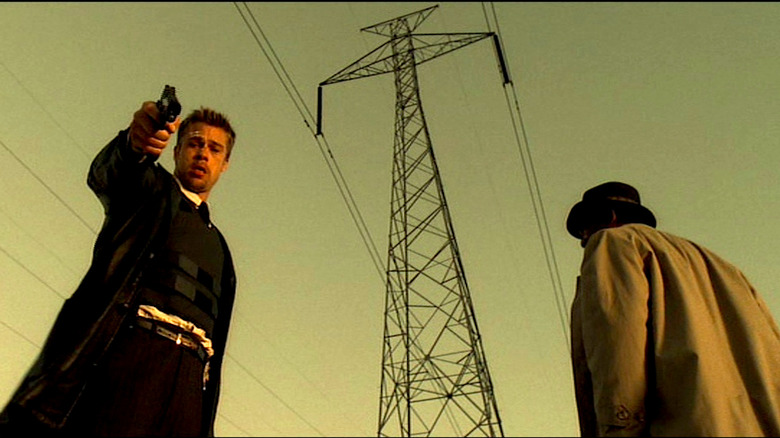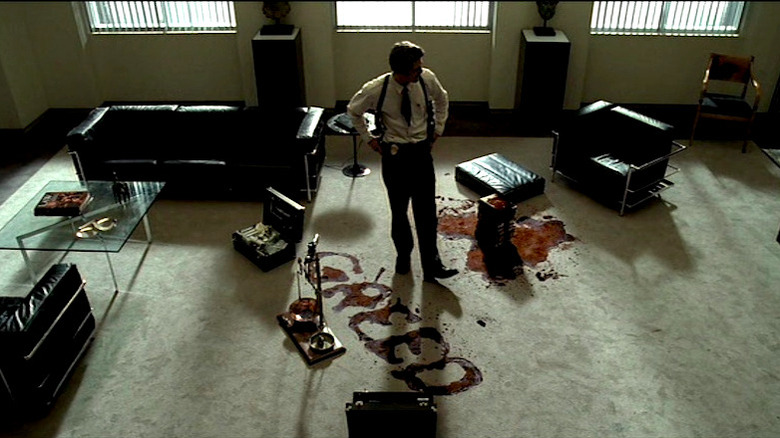David Fincher Would Direct Seven Differently If He Had The Chance
David Fincher has proven time and again he is happy to work on projects that have to do with murder. He seems most happy when they are particularly unique or deranged (think serial killers or wild crimes of passion). He's known for directing the popular Netflix show "Mindhunter," which focuses on the FBI's attempt at classifying serial killers into a usable identification database, and his work on films like "Zodiac," "Gone Girl," and "The Girl with the Dragon Tattoo" all share themes. However, his first big foray into the world of crime came in the form of the movie "Seven" ("Se7ven," if you prefer), which stars a young Brad Pitt alongside Morgan Freeman as they race to catch a serial killer who murders people based on the seven deadly sins.
"Seven" is a very good film. It still holds up nearly 30 years later with a plot that's fast paced and clever, and it packs a wallop of a punch with its twisted ending. The acting is fantastic, and by the time the movie is over, you are most likely thoroughly creeped out. For those who are new to Fincher's filmography, "Seven" is an excellent place to start. It's perhaps not as well known as some of his other, larger films (i.e. "The Social Network" or "Fight Club" — though who am I kidding? Almost every film Fincher has made is a hit), but it really sets the tone for the rest of Fincher's work. However, one person might disagree with me on that last statement, and that is none other than the man himself because, if he could, Fincher would absolutely change his directorial approach to "Seven."
Sometimes the artistic method just changes
To me, even though "Seven" is only David Fincher's second feature, his style is beginning to flourish. While he has definitely changed and improved upon some things during his time as a director, "Seven" still has that Fincher-esque quality of close-ups, high and low shots, and deliberate lighting. Things feel dense and dark, reflecting the subject matter through Fincher's directorial eye. It's interesting then, that Fincher would choose to shoot "Seven" differently now.
He mentioned the desire in an interview for Playboy, where he said, "I'd direct 'Seven' in a different way today. I would have a lot more fun." He elaborated on this a bit in conversation with Little White Lies:
"I think that I have a greater understanding of how to help a story in the telling of it. Whereas, it was probably after 'Panic Room' that I realized I wanted to go in a different direction. I had made two movies in a row that were kind of assaultive in terms of the way they presented the material, and I just sort of felt like, I don't know if I'm that interested in engaging the eye in the same way. I liked the idea of presenting things in a tableaux or a proscenium and watching them. Maybe not cutting as quickly, or shooting as many close-ups. Your taste just evolves. The way you want to see people behave next to each other changes."
This is a statement that feels natural and true. Many artists look back on their past work with the idea that they would do things differently. It's just a part of the creative process. Thankfully, though, regardless of what Fincher may have done today, "Seven" still holds up as a fantastic addition to the world of cinema.

